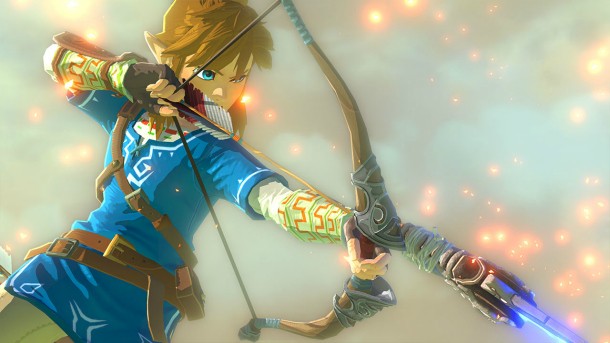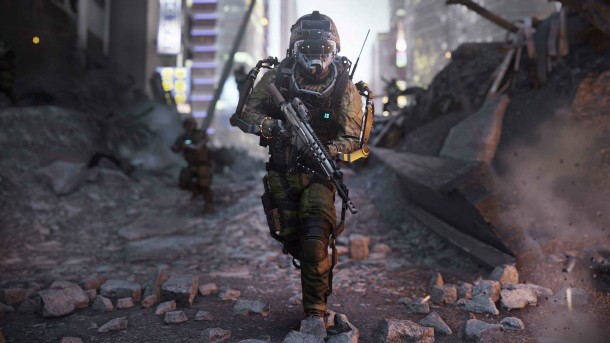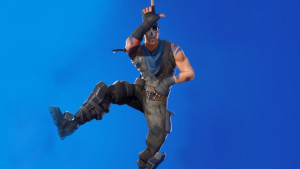Please support Game Informer. Print magazine subscriptions are less than $2 per issue
9 Series That Have Found Their Footing Without Their Creators

Swirling rumors would have you believe that Hideo Kojima, the man who is synonymous with the Metal Gear series, is set to leave Konami – and the franchise he built – behind following Metal Gear Solid V: The Phantom Pain. To this point, no official confirmation has come from Konami or Kojima aside from the man (once again) stating that the upcoming release will be his final Metal Gear game. When combined with Konami saying that it already has plans in place for a new Metal Gear game amidst all of these rumors, some fans are worried.
Many have speculated that the Metal Gear series would never be the same without the legendary designer. While that may be true, if history is to be believed it doesn’t necessarily mean the end of the franchise. Several well-known series have lived on without their beloved creators at the helm, while others, such as Mega Man, have seen new entries cease.
While IPs like Uncharted and Fable have yet to show how they will fare without their respective visionaries, it’s not an untraveled road to be successful following such change. Check out some of our favorite series that have experienced some level of success following the departure of their creators – even if the transitions haven’t been completely bulletproof.

Devil May Cry
Joining Capcom in 1994, Hideki Kamiya worked on the first two entries of the Resident Evil franchise before coming up with an idea for a Resident Evil sequel so radical that Capcom decided to make it a separate IP. The result was an action-packed slash-fest with tight controls that sought to challenge players. The new series was dubbed Devil May Cry, and it released to high praise in 2001. While Kamiya moved around Capcom to work on other series like Viewtiful Joe, Ōkami, and Phoenix Wright, he never worked on another Devil May Cry game.
A new Dante altogether in 2013, but Kamiya’s divergence from the series was noticeable long before DmC: Devil My Cry. Devil May Cry 2 fell flat for many fans, but the third and fourth entries returned the series to former glory, even if they felt like different games from the original. Hideki Kamiya has since founded Platinum Games, which has taken his love of challenging players while delivering rewarding experiences with games like Bayonetta, The Wonderful 101, and the upcoming Scalebound.

Assassin’s Creed
In 2010, following the release of Assassin’s Creed II, Patrice Désilets departed Ubisoft to join THQ’s new Montreal studio, which was eventually bought by Ubisoft in January 2013. Désilets was terminated by the publisher later that year and the two sides have been locked in litigation over Désilets’ new IP ever since. Jade Raymond also left the series following Assassin’s Creed II, and left Ubisoft in 2014.
The series has seen its share of ups and downs since Désilets and Raymond left, but it certainly hit the right notes on games like Brotherhood and Black Flag. Despite these highs, the series remains changed in obvious ways, as the direction of the more recent games feels less intentional than that of the earlier games. Despite Unity’s well-documented technical issues, it still provided a good experience that tried new things while refining older mechanics and hopefully set a well-defined direction for the future of the series.

The Legend of Zelda
With Ocarina of Time, the team at Nintendo, led by legendary designer Shigeru Miyamoto, crafted a masterpiece that made great strides for the adventure genre. Following that release, however, Miyamoto – remaining in a supervisory producer role – gave up directorial responsibilities to Eiji Aonuma. Aonuma’s first games as director, Majora’s Mask and The Wind Waker, were divisive upon release, but have both stood the test of time and are now regarded by most as classic entries in the long-running series.
Aonuma has since become the face of the Zelda franchise, serving as director on Twilight Princess and producer on subsequent entries. Miyamoto has remained on in a production role as well, though it seems that Aonuma is much more hands-on with the actual design and development now. In addition to being a producer alongside Aonuma on the upcoming Wii U Legend of Zelda game, Miyamoto is currently working on a new Star Fox game for Wii U, as well as two new titles currently called Project: Guard and Project Giant Robot.

Resident Evil
The Resident Evil series has undergone drastic changes following the departure of its visionary creator, with Shinji Mikami’s survival-horror masterpiece evolving into more of a tense action shooter experience. Even under Mikami, however, the Resident Evil franchise was well on its way to a more modern and approachable action experience, as Mikami left Capcom following his role as director in the more action-oriented Resident Evil 4.
With Resident Evil 5, the series moved to a decidedly more western vibe. The franchise shifted away from the on-edge, low-ammo scenarios that made the franchise so great in the first place, and gravitated toward action-packed sequences with massive set pieces and a cooperative gameplay focus. That carried on with Resident Evil 6, which many consider to be a low point of the franchise. Luckily, the Resident Evil Revelations games have brought back what made many of the entries so great, with Revelations 2 hitting that sweet spot for many players. Mikami is currently playing on his roots as a survival-horror mastermind through last year’s exceedingly stressful title, The Evil Within, under Tango Gameworks, the studio he founded following his shift from Capcom.
On the next page: Living out our rock star dreams with a new record label, fighting space aliens under a different banner, augmenting our bodies with a different surgeon, and more!

Call of Duty
One of the most recognizable modern series in the industry has a tumultuous past. With Infinity Ward releasing the first two Call of Duty games, Call of Duty 3 was handed off to Treyarch while Infinity Ward moved on with the next game in the series. Call of Duty 3 may have proved unpopular with the player base, but the game that Infinity Ward developed, Call of Duty 4: Modern Warfare, changed the course of the franchise forever and catapulted it forward to become the most popular first-person shooter franchise in the game industry.
Unfortunately, the success of the franchise led to new problems, as Activision and Infinity Ward founders Vince Zampella and Jason West became entangled in a legal battle surrounding bonus wages owed to them and nearly 40 employees for work done on Modern Warfare 2. The result was several employees leaving Infinity Ward with many of the key team members joining Zampella and West in forming a new studio, Respawn Entertainment. In 2014, Respawn launched Titanfall on Xbox and PC. Though many of the games have received just as much love from the community, the Call of Duty franchise has experienced some less lauded releases – most notably Infinity Ward’s most recent game, Ghosts – but with Sledgehammer Games’ Call of Duty: Advanced Warfare, the series looks back to form.

Deus Ex
Under Warren Spector and Ion Storm, the first Deus Ex released to universal critical acclaim. With freedom of choice elements reaching previously unexplored territory, Deus Ex released to become one of the first undeniably influential games of the 21st century. Unfortunately, the 2003 follow-up, Invisible War, was less adored by the fan base and the franchise disappeared for several years.
In 2007, however, Square Enix tapped Jean-Françoise Dugas to create a new studio for the purpose of developing a third Deus Ex game. That game released in 2011 as Deus Ex: Human Revolution, revitalizing the series and righting the course for future titles under an announced Deus Ex: Universe umbrella. It’s unknown what the future of the franchise holds, but with the solid foundation of Human Revolution setting the tone, it seems bright.

Halo
The series that revolutionized the first-person shooter genre in the early 2000s continued thriving through much of the decade (even though a few missteps occurred in some of the later games). Because of this, when it was announced that Bungie would be leaving the franchise behind to craft a new multiplatform IP that we now know as Destiny, there was obvious reason for concern.
Bungie’s history with Halo cast a massive shadow for the future development team, and while Halo 4 features a decidedly different tone and many modern mechanics from other games within the genre, 343 Industries did a great job with its first outing without the original creators. Unfortunately, much of the success that 343 Industries achieved with Halo 4 was completely eclipsed by the technical issues surrounding The Master Chief Collection, making Halo 5: Guardians that much more important for the future of the series.

Final Fantasy
Starting as a part-time employee at Square in 1983 after dropping out of college, Hironobu Sakaguchi developed Final Fantasy as his last-ditch effort to “make it” in the game industry. Had the RPG failed, Sakaguchi planned on returning to school to continue his studies. Thanks to its success, Sakaguchi continued working on the franchise, directing each entry through Final Fantasy V, before taking production roles on titles up until Final Fantasy X-2. In 2003, the once part-time employee resigned from Square as the executive vice president.
Since leaving Square, Sakaguchi founded Mistwalker, a studio that has put out RPGs like Blue Dragon, Lost Odyssey, and The Last Story. The Final Fantasy franchise continues on, though the entries have been arguably more divisive, with Final Fantasy XII and the Final Fantasy XIII trilogy releasing following Sakaguchi’s departure. Luckily, Final Fantasy XIV made amends for an awful launch with a solid re-launch, and Final Fantasy XV is showing a lot of promise. The series hasn’t quite stuck the landing following Sakaguchi’s dismount, but it’s well on its way in the eyes of many Final Fantasy fans.

Guitar Hero
The series that kickstarted our rock star daydreams has been villianized in its later years with the opinion that it oversaturated the market and sent the genre into a tailspin, but at its peak, the franchise was a household name. Much of that success is thanks to Harmonix, which created every title up through the Guitar Hero II standalone expansion, Rocks the ‘80s. Once the IP was purchased by Activision beginning with Guitar Hero II, the publisher announced plans to migrate the franchise to one of its internal development studios, eventually doling out the responsibility to Neversoft, as well as Vicarious Visions and Beenox.
With Guitar Hero moving on without Harmonix, the Boston-based studio created Rock Band, which expanded the genre to a full band format. Even without Harmonix, however, the Guitar Hero franchise exploded in popularity under Activision and Neversoft, as Guitar Hero III: Legends of Rock shattered sales records. Sadly, the franchise’s decline following its 2007 hit was well documented, and many consider Rock Band to be the higher-quality series, particularly with its approach to downloadable content. Still, with Rock Band 4 making a comeback this year, and rumors that Guitar Hero is following suit, it will be interesting to see what the future holds for both Harmonix and Activision.










